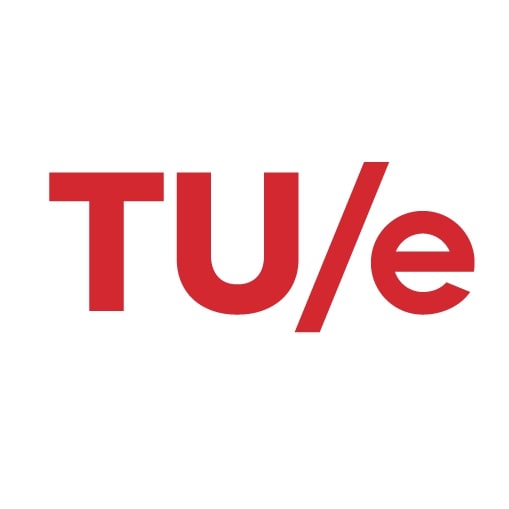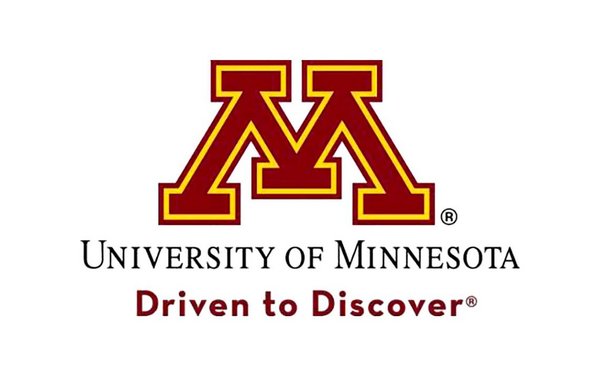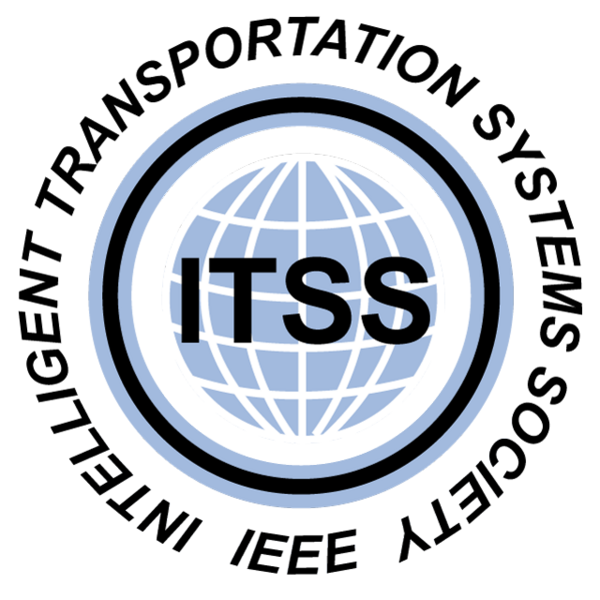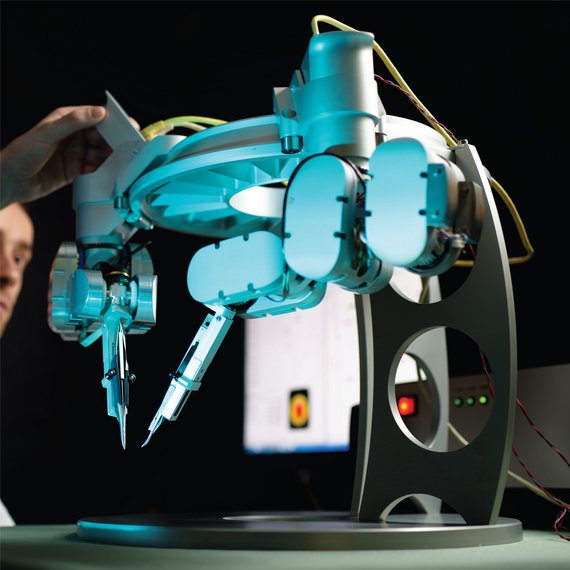Date
Sunday September 19, 2021 from 10:00 AM to 3:00 PMLocation
IEEE Intelligent Transportation Systems Conference (Online)Organizer
Control Systems TechnologyPrice
Conference's websiteFor more information and registration: https://2021.ieee-itsc.org/workshops/
Please note: the workshop times are indicated in Eastern Daylight Time.
Public debate about the future of mobility and transportation is increasingly informed by predictions about the impact of Connected, Autonomous and Electrified Vehicles (CAEVs). As CAEVs are approaching market-readiness and are beginning to be deployed, there are important questions to be answered:
- How can we design profitable and sustainable mobility systems that leverage CAEVs?
- What will these new forms of mobility and transportation mean for society?
- How should we adapt our infrastructure to adequately accommodate future autonomous, connected and electrified mobility systems?
- How can we ensure that such technologies benefit all members of society, improving equity and fairness rather than undermining them?
- How can we ensure that such technologies are leveraged to help meet sustainability goals?
This workshop will gather experts from transportation, mechanical engineering, operations research, robotics, and urban planning in order to:
- identify challenges and opportunities for the future of transportation that are triggered by the advent of electric CAEVs,
- identify modeling and control methodologies to address them,
- share insights from early deployments and turn such insights into an actionable research roadmap.
Topics of interest
- Theoretical modeling methods and analysis tools
- Real-time control algorithms
- Programmatic tools
- Simulation tools
- Technology infusion
- Real-world case studies
Intended audience
This workshop is geared towards mobility and robotics researchers, industry practitioners, and public officials whose work involves the design, deployment, operation, or regulation of autonomous mobility systems. The workshop will present a variety of tools and studies that underpin future transportation systems, and will hopefully prompt fruitful conversations from the variety of stakeholders in such a monumental transformation of our transportation infrastructure.
Program
| Time | Presenter | Information | ||
| 10:00 - 10:30 | Andreas Malikopoulos, University of Delaware | At the Intersection of Learning and Control for Connected and Automated Vehicles. Connected and automated vehicles (CAVs) are typical cyber-physical systems where the cyber component (e.g., data and shared information through vehicle-to-vehicle and vehicle-to-infrastructure communication) can aim at optimally controlling the physical entities. CAVs represent systems of systems with an informationally decentralized structure. In such systems, there is typically a large volume of data with a dynamic nature which is added to the system gradually and not altogether in advance. Therefore, both traditional supervised (or unsupervised) learning and typical model-based control approaches might encounter challenges in effectively facilitating feasible solutions with performance guarantees. In this talk, I will present a framework that can establish separated control strategies on CAVs using team theory. Team theory is a mathematical formalism for informationally decentralized systems in which a team, consisting of a number of members, cooperates to achieve a common objective. By establishing separated control strategies, we can derive offline the optimal control strategy of the team with respect to the information state, which takes values in a time-invariant space, and then use learning methods to update the optimal strategy online while data are added gradually to the team. This approach could effectively facilitate optimal solutions with performance guarantees in a wide range of traffic scenarios of CAVs. | ||
| 10:30 - 11:00 | Alireza Talebpour, University of Illinois | Safety vs. Efficiency: A New Approach to Automated Vehicle Design. Safety has been the main driving force behind the design and development of connected, automated vehicles (CAVs) in the past several years. From the transportation and traffic flow perspective, however, the efficiency of CAVs and their impact on traffic flow dynamics is another critical design factor, that has been overlooked by the CAV industry. Accordingly, the key question is “what does ‘safe design’ mean for the efficiency of automated vehicles?”. Answering this question can bridge the gap between the current state of CAV design and expectations from this technology in the transportation community. This presentation will focus on this question and evaluates the impacts of design for ultimate safety on traffic flow dynamics. Furthermore, a collaborative connected, automated driving environment will be presented as a solution to ensure both safety and efficiency, addressing the limitations of a safety-oriented design. | ||
11:00 - 11:30 | Arjo van der Ham, Lightyear | Vehicle Performance Modelling at the center of the concept and design phase to halve the energy consumption of Electric Vehicles. Lightyear was founded in 2016 with the mission to provide clean mobility for everyone. The founding team won multiple editions of the World Solar Challenge with the development of ultra-efficient solar-powered family cars. The key to the development of highly efficient vehicles is in making the correct concept choices consequently throughout the design process. To facilitate this, Lightyear has developed the Vehicle Performance Model and staged it in the center of the engineering process to make sure that every decision is made with efficiency in mind. That has resulted in the development of Lighyear One - to be launched in 2022 - a five seater electric vehicle twice as efficient as current offerings on the market that receives about 70% of its energy demand from the solar panel on the roof and hood in a typical usage scenario. Find here the presentation. | ||
| 11:30 - 12:00 | Frank Douma, University of Minnesota | CAEV's In Real Life: Considerations for Ensuring Benefits to Society: Connected Autonomous and Electrified Vehicles (CAEV's) and their self-driving / driverless cousins (CAV's, ACES, SAEV's etc) all have been described as "disruptive" technologies, bearing the potential of challenging any and all current assumptions about how we move ourselves and our stuff from point "A" to point "B." However, ensuring that deployment of these technologies will give us the chance to challenge those assumptions, and that the ensuing deployment choices we make actually bring societal benefits, will depend upon understanding the current policy and legal landscape that shapes our current transportation system, and understanding which policy changes are most likely to create the incentives for the "best" deployment scenarios. Frank will provide a high-level overview of some of the current transportation planning and policy challenges we face in the current system, and suggest some opportunities where changes to those policies will open the door for beneficial deployment of self-driving vehicles. Find here the presentation. | ||
| 12:00 - 13:00 | Break | |||
| 13:00 - 13:30 | Scott Moura, UC Berkeley | SlrpEV: Smart LeaRning Pilot for Electric Vehicles - Future sustainable transportation systems will be automated, connected, and electrified. This transition requires completely new paradigms for smart infrastructure built upon data, control, and optimization. In this talk, we highlight SlrpEV (Smart LeaRning Research Pilot for Electric Vehicles) – a novel cyber-physical & human system research platform. SlrpEV seeks to resolve critical obstacles for public & workplace EV charging stations via novel pricing and power scheduling that learns and adapts to user preferences to minimize costs, emissions, and increase accessibility. We close with broad perspectives on building a smart transportation and energy infrastructure that advances both sustainability and equity. | ||
| 13:30 - 14:00 | Marco Pavone, Stanford University | On the planning and operational aspects of autonomous mobility-on-demand systems - In this talk Marco will discuss the planning and operational aspects of using autonomous vehicles in future mobility systems, specifically in the context of autonomous mobility-on-demand (AMoD) systems. The emphasis will be on how to characterize and harness the interaction between AMoD and other infrastructures, such as the electric power and public transit networks. He will conclude the talk by providing an overview of related efforts from my group on ensuring privacy and fairness in transportation. | ||
| 14:00 - 15:00 | Final Panel Discussion |
Workshop organizers
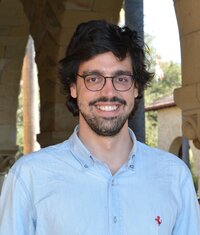
Mauro Salazar is an Assistant Professor in the Control Systems Technology group at Eindhoven University of Technology (TU/e). He received the Ph.D. degree in Mechanical Engineering from ETH Zürich in 2019. Before joining TU/e he was a Postdoctoral Scholar in the Autonomous Systems Lab at Stanford University. Dr. Salazar’s research is at the interface of control theory and optimization, and is aimed at the development of a comprehensive set of tools for the design, the deployment and the operation of sustainable mobility systems. Dr. Salazar received the Outstanding Bachelor Award and the Excellence Scholarship and Opportunity Award from ETH Zürich. Both his Master thesis and PhD thesis were recognized with the ETH Medal, and he was granted the Best Student Paper award at the 2018 Intelligent Transportation Systems Conference.

Raphael Stern is an Assistant Professor in the Department of Civil, Environmental, and Geo- Engineering at the University of Minnesota. Prior to joining UMN, Dr. Stern was a postdoctoral researcher in the Department of Informatics at the Technical University of Munich. Dr. Stern has also spent time as a visiting researcher at the Institute for Software Integrated Systems at Vanderbilt University. Dr. Stern received a bachelor of science degree (2013), master of science degree (2015), and Ph.D. (2018) all in Civil Engineering from the University of Illinois at Urbana-Champaign.
More information about our presenters
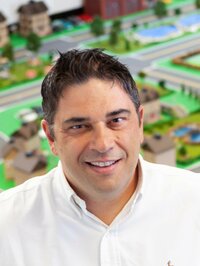
Dr. Andreas Malikopoulos is the Terri Connor Kelly and John Kelly Career Development Associate Professor in the Department of Mechanical Engineering and the Director of the Sociotechnical Systems Center at the University of Delaware (UD). Prior to these appointments, he was the Deputy Director and the Lead of the Sustainable Mobility Theme of the Urban Dynamics Institute at Oak Ridge National Laboratory, and a Senior Researcher with General Motors Global Research & Development. He received a Diploma from the National Technical University of Athens, Greece, and his M.S. and Ph.D. degrees from the University of Michigan, Ann Arbor, in 2004 and 2008, respectively, all in Mechanical Engineering. His research interests span several fields, including analysis, optimization, and control of cyber-physical systems; decentralized stochastic systems; stochastic scheduling and resource allocation; and learning in complex systems. Dr. Malikopoulos is the recipient of several prizes and awards, including the 2007 Dare to Dream Opportunity Grant from the University of Michigan Ross School of Business, the 2007 University of Michigan Teaching Fellow, the 2010 Alvin M. Weinberg Fellowship, the 2019 IEEE Intelligent Transportation Systems Young Researcher Award, and the 2020 UD’s College of Engineering Outstanding Junior Faculty Award. He has been selected by the National Academy of Engineering to participate at the 2010 German-American Frontiers of Engineering (FOE) Symposium and organize a session in transportation at the 2016 European-American FOE Symposium. He has also been selected as a 2012 Kavli Frontiers of Science Scholar by the National Academy of Sciences. Dr. Malikopoulos has been an Associate Editor of the IEEE Transactions on Intelligent Vehicles and IEEE Transactions on Intelligent Transportation Systems from 2017 through 2020. He is currently an Associate Editor of Automatica and IEEE Transactions on Automatic Control. He is a Senior Member of the IEEE and a Fellow of the ASME.
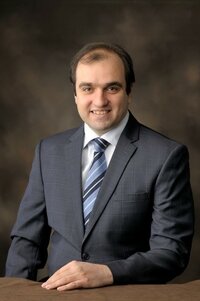
Alireza Talebpour received his B.S. and M.S. degrees in Civil Engineering from Sharif University of Technology, Tehran, Iran, in 2007 and 2009, respectively. He received his Ph.D. in Civil and Environmental Engineering from Northwestern University, Evanston, IL, USA, in 2015. He is currently an Assistant Professor in the Department of Civil and Environmental Engineering at the University of Illinois at Urbana-Champaign. His current research focuses on theoretical and experimental studies of human-automated vehicle interactions and he is the vehicle development lead in one of the USDOT Automated Driving Demonstration (ADS) grants, AVA: Automated Vehicles for All.
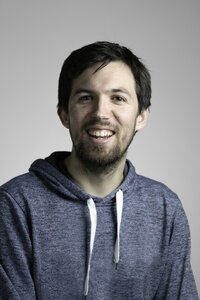
Arjo van der Ham is Co-Founder and Chief Technology Officer at Lightyear. He is responsible for the Research, Design, Engineering and IP departments and focuses on the core technology development such as in-wheel motors and solar panels. His interests are on how to further automate engineering tasks, integrate tools and workflows and parametrize designs to decrease time to market new technologies. Arjo holds a MSc from Eindhoven University of Technology in Electrical Engineering with specialization in power electronics.
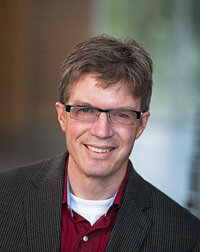
Frank Douma is director of State & Local Policy and Outreach at the Humphrey School’s Institute for Urban and Regional Infrastructure Finance and a research scholar at the Center for Transportation Studies, located at the University of Minnesota. His research focuses on policy and legal issues related to transportation technologies, including telework, tolling and other transportation finance tools, safety, and self-driving vehicles. Mr. Douma has been widely quoted in the media, from the New York Times and the Minneapolis Star Tribune to the Fergus Falls Daily Journal, and from the Wall Street Journal to the White Bear Press. He has also authored a number of legal and academic journal articles.
In addition to the Humphrey School, Mr. Douma has worked for the Canadian Pacific Railway, the Metropolitan Airports Commission and the Minnesota Department of Transportation. Mr. Douma has a Master of Arts in Public Affairs from the Humphrey School and a law degree from the University of Minnesota. He earned his bachelor’s degree in political science from Grinnell College.
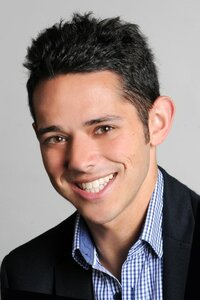
Scott Moura is the Clare and Hsieh Wen Shen Endowed Distinguished Professor in Civil & Environmental Engineering, Director of the Energy, Controls, & Applications Lab (eCAL), and Chair of Engineering Science at the University of California, Berkeley. He received the B.S. degree from the University of California, Berkeley, CA, USA, and the M.S. and Ph.D. degrees from the University of Michigan, Ann Arbor, in 2006, 2008, and 2011, respectively, all in mechanical engineering. From 2011 to 2013, he was a Post-Doctoral Fellow at the Cymer Center for Control Systems and Dynamics, University of California, San Diego. In 2013, he was a Visiting Researcher at the Centre Automatique et Systèmes, MINES ParisTech, Paris, France. His research interests include control, optimization, and machine learning for batteries, electrified vehicles, and distributed energy resources.
Dr. Moura is a recipient of the National Science Foundation (NSF) CAREER Award, Carol D. Soc Distinguished Graduate Student Mentor Award, the Hellman Fellowship, the O. Hugo Shuck Best Paper Award, the ACC Best Student Paper Award (as advisor), the ACC and ASME Dynamic Systems and Control Conference Best Student Paper Finalist (as student and advisor), the UC Presidential Postdoctoral Fellowship, the NSF Graduate Research Fellowship, the University of Michigan Distinguished ProQuest Dissertation Honorable Mention, the University of Michigan Rackham Merit Fellowship, and the College of Engineering Distinguished Leadership Award.
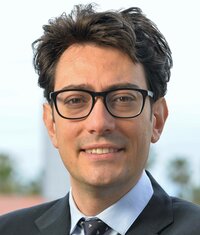
Dr. Marco Pavone is an Associate Professor of Aeronautics and Astronautics at Stanford University, where he is the Director of the Autonomous Systems Laboratory and Co-Director of the Center for Automotive Research at Stanford. He is currently on a partial leave of absence at NVIDIA serving as Director of Autonomous Vehicle Research. Before joining Stanford, he was a Research Technologist within the Robotics Section at the NASA Jet Propulsion Laboratory. He received a Ph.D. degree in Aeronautics and Astronautics from the Massachusetts Institute of Technology in 2010. His main research interests are in the development of methodologies for the analysis, design, and control of autonomous systems, with an emphasis on self-driving cars, autonomous aerospace vehicles, and future mobility systems. He is a recipient of a number of awards, including a Presidential Early Career Award for Scientists and Engineers from President Barack Obama, an Office of Naval Research Young Investigator Award, a National Science Foundation Early Career (CAREER) Award, a NASA Early Career Faculty Award, and an Early-Career Spotlight Award from the Robotics Science and Systems Foundation. He was identified by the American Society for Engineering Education (ASEE) as one of America's 20 most highly promising investigators under the age of 40. His work has been recognized with best paper nominations or awards at the European Control Conference, at the IEEE International Conference on Intelligent Transportation Systems, at the Field and Service Robotics Conference, at the Robotics: Science and Systems Conference, at the ROBOCOMM Conference, and at NASA symposia. He is currently serving as an Associate Editor for the IEEE Control Systems Magazine.
